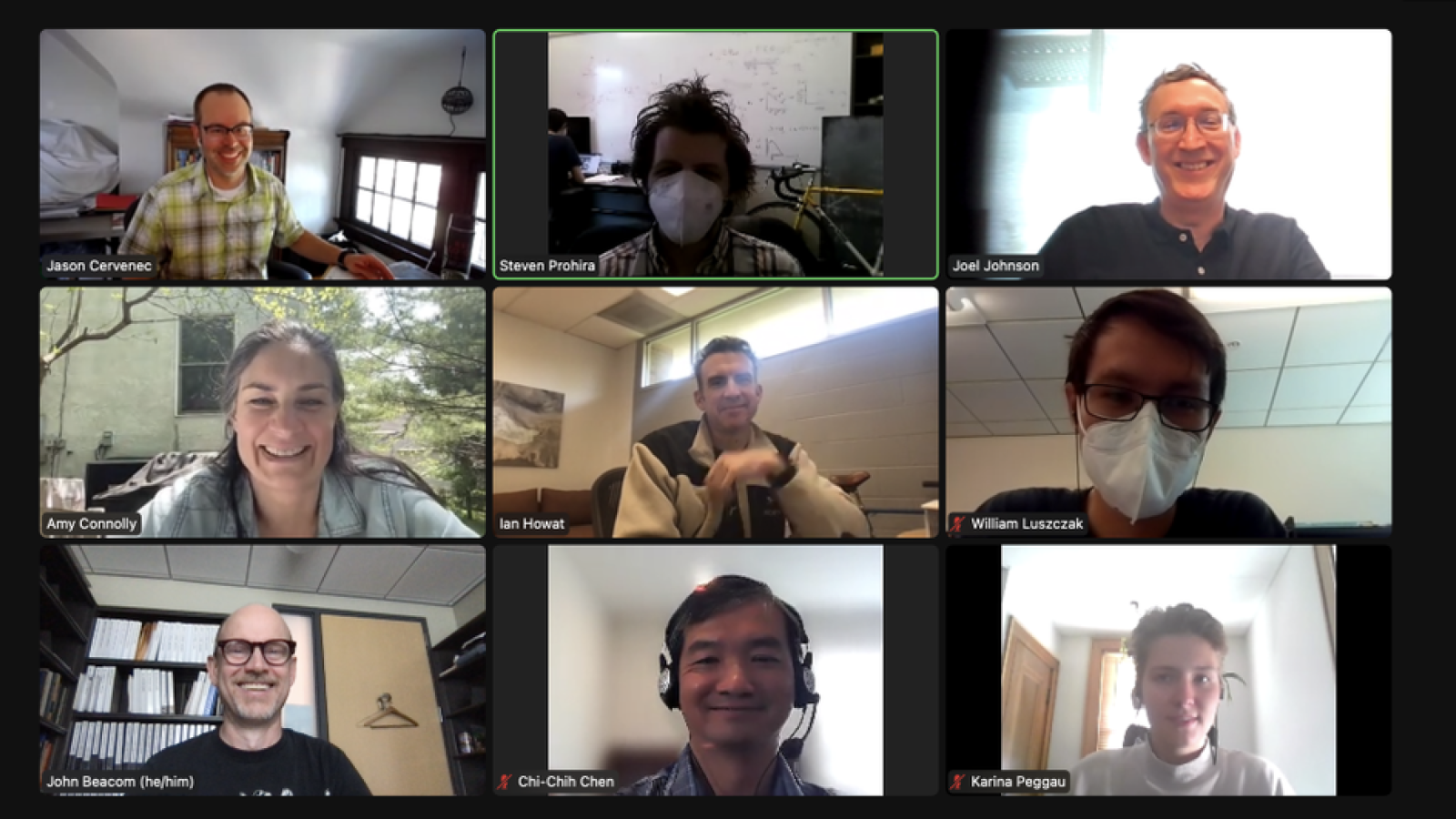BPCRC & CCAPP Joint Workshop 2022
The Byrd Polar and Climate Research Center (BPCRC) and the Center for Cosmology and AstroParticle Physics (CCAPP) are planning a joint meeting to discuss interdisciplinary overlap, sharing of data and complementary methods of studying ice sheets. Each attendee has been asked to prepare a brief presentation that will help frame the following roundtable conversation. Attendees in need of further assistance with this can refer to the meeting contacts listed below.
Some of us here at CCAPP are involved in various experiments that use large volumes of ice to detect neutrinos. We do this because neutrinos are very weakly interacting particles (meaning they can pass through huge amounts of material without interacting; many are passing through our bodies all the time!) and so we need very large volumes of uniform material in order to increase the probability of interaction, and then detection. Large ice sheets provide a very nice uniform target material... except that it isn't very uniform after all!
At CCAPP, we use various methods to detect these neutrinos in the ice. One is by detecting optical light produced when they interact. Another uses radio waves (either by detecting radio emitted by the neutrino interactions, or via active radar sounding). The different wavelengths of these signals (optical light, ~10^-6 meters, radio ~ 1 meter) means that we need to understand the ice over a large range of scales, from the microscopic to the macroscopic. We have studied this experimentally by measuring the propagation of radio signals in the ice, and theoretically.
CCAPP will be discussing their work at South Pole Station involving neutrinos, where they drill ice and install sensors that might have an ability to provide our teams with additional data. They will also be discussing the study of ice sheets in relation to the IceCube Experiment. We have much to understand about the ice (density, index of refraction, attenuation, ice flow, layering, birefringence) that is relevant to neutrino detection, and may be of interest to ice experts too.
BPCPC will be discussing their own work in the South Pole as OSU's foothold in polar research, spanning over topics including but not limited to environmental geochemistry, geological sciences, glacier dynamics, and glacier environmental change.
Lunch will be catered by CCAPP from Qdoba, with no dietary restriction requests.
Thursday, May 12th, 2022 from 11 A.M. to 1 P.M.
Physics Research Building, Room 4138
191 West Woodruff Ave., Columbus, OH
Meeting Contacts:
Lisa Colarosa, Program Coordinator at CCAPP
E-mail: colarosa.5@osu.edu
Phone: (614) 292-0792
Jason Cervenec, BPCRC Education & Outreach Director
E-mail: cervenec.1@osu.edu
Phone: (614) 688-0080

